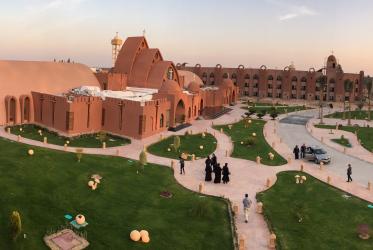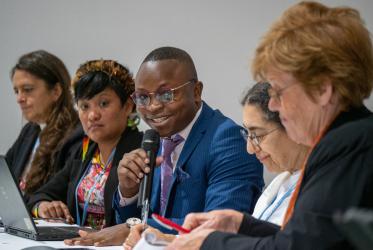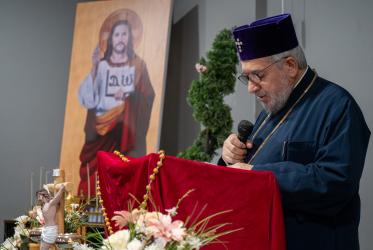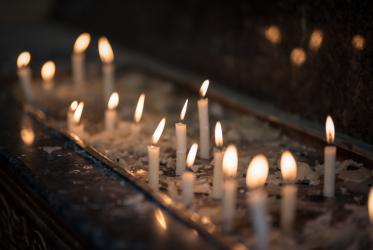Nilsynode der Evangelischen Kirche
*Official church membership does not accurately reflect church attendance. For various political and social reasons, an unknown but large number of people, while fully active and vital "members" of a congregation, maintain their official membership in the Coptic Orthodox Church.
Founded in 1854 by American Presbyterian missionaries, the Evangelical Presbyterian Church of Egypt became autonomous in 1926 and has since carried on the tradition of serving the local communities through countless social, educational, medical, evangelistic and mission programmes. At the forefront of education and inclusivity in Egypt, the Synod of the Nile founded the country's first primary schools for girls, for students with special needs, and vocational training centres ranging from secretarial work to dairy farming. Inheriting 13 American mission schools, the synod now operates 23, in addition to 37 schools for all ages administered by local churches. Members of the Synod of the Nile are credited with co-founding Egypt's two leading academic institutions, Cairo University and the American University in Cairo, while training pastors from across Africa and the Middle East at the Evangelical Theological Seminary of Cairo. The seminary reforms itself to this day to meet the demands of mission and pastoral leadership amidst a diverse geographical, socio-economic and religious constituency.
"The Whole Gospel to the Whole Person" reminds all church members of their great privilege and responsibility. This mantra describes the newest training programme for lay ministers working in hospitals, youth centres, nursing homes, hos¬tels, orphanages and retreat centres across the country, struggling for quality and dignity of life for Christians and Muslims alike. The church runs three hospitals and four orphanages. Youth centres have become a vital part of the life of the church; there are five in Alexandria, one in Port Said and several others in different places in Egypt. Working with the poorest of the poor, the Coptic Evangelical Organization for Social Services represents one of Egypt's largest development organizations addressing rampant illiteracy, women's rights, sexual education, industrialized urbanization and tolerance. The Synod of the Nile was among those that initiated the inclusion of the Orthodox and Catholic churches into the Middle East Council of Churches, and continues to be a voice for ecumenism. It hosts an inter-denominational dialogue with the Episcopalians and Lutherans, in which it is hoped to include the Coptic Orthodox Church in the near future. The church is also running two programmes for Christian-Muslim dialogue.





